H I G H L I G T H
IEEE – Institute of Electrical and Electronic Engineers grants acknowledgement award to José Carlos Príncipe
“It’s incredibly rewarding to understand and explain to the world something that nobody had ever thought about before” 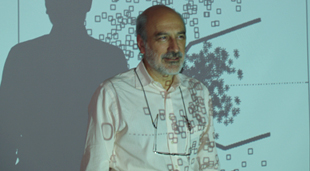
José Carlos Príncipe is the coordinator of the International Commission for Scientific Follow-up at INESC Porto. He is a professor at the University of Florida in the United States and also at the Faculty of Engineering from the University of Porto. He has four edited books and wrote 14 articles for specialized publications as well as 116 articles for magazines. He was granted with five patents and has participated in 276 conferences, supervised 50 PhDs and 61 Master’s Degrees. He is now going to receive the “2007 IEEE Engineering in Medicine and Biology Society Career Achievement Award”.
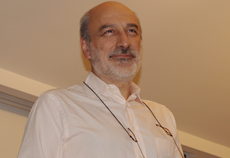 Created in 1884, the IEEE (Institute of Electrical and Electronics Engineers) is the largest technical society in the world with more than 370 thousand members. José Carlos Príncipe’s contributions and exceptional achievements in the area of Biomedical Engineering were acknowledged by the IEEE on 24 August in Lyon, France. Created in 1884, the IEEE (Institute of Electrical and Electronics Engineers) is the largest technical society in the world with more than 370 thousand members. José Carlos Príncipe’s contributions and exceptional achievements in the area of Biomedical Engineering were acknowledged by the IEEE on 24 August in Lyon, France.
BIP interviewed the awarded coordinator and found out that this award, the highest point in his career, is said to be the beginning of an even greater dedication to biomedical engineering. The professor admits that he always liked to “invent solutions and create new ideas”, but it was the beginning of his researching experience at the age of 20 that made him grow. The researcher even creates a metaphor saying “Now I can control the ball on my shoulders.”
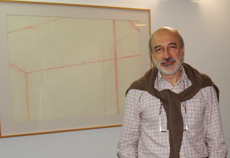 He started working with INESC Aveiro in the 1980s and ever since then he has been cooperating with the institution. For him, INESC became “an essential turning point in Portuguese research”. José Carlos Príncipe believes that INESC Porto has the same ability to innovate and be a pioneer. The professor even says that “INESC Porto has the future”, so “they have to keep investing in order to compete with the best”. He started working with INESC Aveiro in the 1980s and ever since then he has been cooperating with the institution. For him, INESC became “an essential turning point in Portuguese research”. José Carlos Príncipe believes that INESC Porto has the same ability to innovate and be a pioneer. The professor even says that “INESC Porto has the future”, so “they have to keep investing in order to compete with the best”.
BIP – Being so young, what did this award mean to you and your career?
José Carlos Príncipe – This award was the highest point in my scientific career. All of those who were previously awarded belong to a group of pioneering people which made biomedical engineering what it is today. For that, being one of them makes me feel somewhat uncomfortable. That means that I must work hardly until the end of my career so that I don’t become an isolated member.
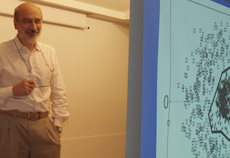 BIP – What did you want to be when you were a child? Did you ever imagine that you would devote 20 years of your life to biomedical engineering? BIP – What did you want to be when you were a child? Did you ever imagine that you would devote 20 years of your life to biomedical engineering?
JCP – I always wanted to know how things worked, so, becoming an engineer was compatible to this constant curiosity. I guess I could have worked in physics as well. However, engineering creates new realities and this has always fascinated me more than just explaining the reality we know. Therefore, it’s incredibly rewarding to be able to invent new solutions or create new ideas.
When I left Portugal to pursue my post-graduation studies, my aim was to study microwaves. However, the professor I was going to work with went out on sabbatical leave and I had to come up with new projects. So I got interested in digital processing of biomedical signals which started being studied on the mid-1970s. However, I never thought I would fully dedicate myself to this matter for twenty years (and it won’t stop here!).
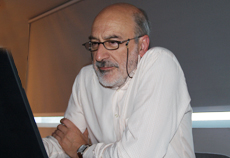 BIP – What is most rewarding to you about your career? BIP – What is most rewarding to you about your career?
JCP – Several things. The first one (the most important of all) is the privilege to work with intelligent and motivated people. Our PhD students are something like “our intellectual children” to whom we provide guidance until they grow. The second one is the fact that I’m able to explain to the world something that nobody had ever thought about before. The third one is to realize that these contributions are being used to improve the society we live in.
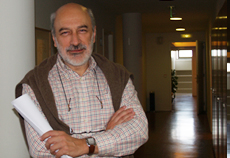 BIP – As a human being and researcher, did anything change in you all these years you were living in Florida? BIP – As a human being and researcher, did anything change in you all these years you were living in Florida?
JCP – This experience has obviously taught me how to be methodic, how to ask questions which can be replied with a scientific method. That made me grow, I mean, now I can control the ball on my shoulders. I’m sure it happens to everyone regardless of where they work. However, the advantage of living in the United States is the fact that I was able to make comparisons.
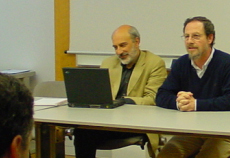 Culture is somewhat like the land in an electrical system which means that all tension measures are made according to its values. Therefore, when we move into a different culture, we gain a whole new vision of reality. Right now I feel like I observe both the Portuguese and American cultures from an external point of view. Sometimes it’s quite uncomfortable, but fascinating as well because I’m able to understand the weak and strong points in both systems! Culture is somewhat like the land in an electrical system which means that all tension measures are made according to its values. Therefore, when we move into a different culture, we gain a whole new vision of reality. Right now I feel like I observe both the Portuguese and American cultures from an external point of view. Sometimes it’s quite uncomfortable, but fascinating as well because I’m able to understand the weak and strong points in both systems!
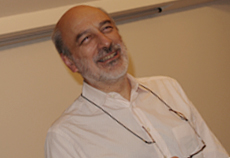 BIP – How did your cooperation with INESC Porto start? Do you remember how you first established a close connection with our institute? What year was it? BIP – How did your cooperation with INESC Porto start? Do you remember how you first established a close connection with our institute? What year was it?
JCP – I can’t remember all the details, but I remember that the Aveiro group, with which I was already cooperating, was one of the first to be part of the TIAS project (Information Technology Applied to Healthcare). This happened in 1980.By then, we were quite particular. When I was already abroad, INESC fragmented and, naturally, I became more interested in INESC Norte, which later became INESC Porto. On the other hand, I’m also part of the International Committee for Scientific Follow-up from Lisbon’s INESC ID. I believe that INESC was an essential turning point in Portuguese research, so, it was difficult to ignore it.
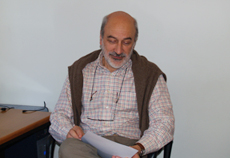 BIP – Considering that the Board you are currently coordinating at INESC Porto is an evaluation and internal advisory board and considering that you have a broad vision of the international R&D institutions, what kind of advice can you give to INESC? BIP – Considering that the Board you are currently coordinating at INESC Porto is an evaluation and internal advisory board and considering that you have a broad vision of the international R&D institutions, what kind of advice can you give to INESC?
JCP – I think that INESC should continue investing in order to compete with the best, even if it means investing in a smaller area, considering that people and sums are limited.
BIP – What do you think about INESC Porto’s new model of network management? What do you think is going to happen to the institute in the future?
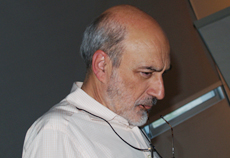 JCP – The advantage in thinking about the future is that we can see that days come one at a time. Therefore, we can always learn from our mistakes. INESC Porto’s biggest challenge is to understand if the current model is scalable to another dimension. Probably it’s not and that is why it is necessary to evaluate experiences while we are going through them and not what is already done. JCP – The advantage in thinking about the future is that we can see that days come one at a time. Therefore, we can always learn from our mistakes. INESC Porto’s biggest challenge is to understand if the current model is scalable to another dimension. Probably it’s not and that is why it is necessary to evaluate experiences while we are going through them and not what is already done.
INESC Porto’s future is directly related to the ability to lead in research, mobilization of resources. Also, it should have a technological intervention plan in a very peculiar society such as this one. Importing models is easy, but only some of them work… and normally they have to be adapted to the local reality. This is why INESC has a future!
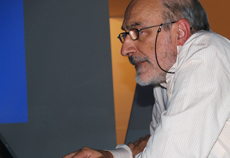 BIP – Would you like to go back to Florida one day? Do you miss Porto and Portugal? What do you miss the most? What don’t you miss at all? BIP – Would you like to go back to Florida one day? Do you miss Porto and Portugal? What do you miss the most? What don’t you miss at all?
JCP – The biggest fallacy in my life was some sort of virtual horizon. I always intend to go back in two years… but I never realize that some thinks can’t be delayed and must be decided right away.
I really enjoy walking on the streets of Porto and appreciate the way we live. What I miss the most are my friends and family. What I really don’t miss at all is the Portuguese pessimist attitude.
|


 Created in 1884, the IEEE (Institute of Electrical and Electronics Engineers) is the largest technical society in the world with more than 370 thousand members. José Carlos Príncipe’s contributions and exceptional achievements in the area of Biomedical Engineering were acknowledged by the IEEE on 24 August in Lyon, France.
Created in 1884, the IEEE (Institute of Electrical and Electronics Engineers) is the largest technical society in the world with more than 370 thousand members. José Carlos Príncipe’s contributions and exceptional achievements in the area of Biomedical Engineering were acknowledged by the IEEE on 24 August in Lyon, France.  He started working with INESC Aveiro in the 1980s and ever since then he has been cooperating with the institution. For him, INESC became “an essential turning point in Portuguese research”. José Carlos Príncipe believes that INESC Porto has the same ability to innovate and be a pioneer. The professor even says that “INESC Porto has the future”, so “they have to keep investing in order to compete with the best”.
He started working with INESC Aveiro in the 1980s and ever since then he has been cooperating with the institution. For him, INESC became “an essential turning point in Portuguese research”. José Carlos Príncipe believes that INESC Porto has the same ability to innovate and be a pioneer. The professor even says that “INESC Porto has the future”, so “they have to keep investing in order to compete with the best”.  BIP – What did you want to be when you were a child? Did you ever imagine that you would devote 20 years of your life to biomedical engineering?
BIP – What did you want to be when you were a child? Did you ever imagine that you would devote 20 years of your life to biomedical engineering?  BIP – What is most rewarding to you about your career?
BIP – What is most rewarding to you about your career?  BIP – As a human being and researcher, did anything change in you all these years you were living in Florida?
BIP – As a human being and researcher, did anything change in you all these years you were living in Florida?  Culture is somewhat like the land in an electrical system which means that all tension measures are made according to its values. Therefore, when we move into a different culture, we gain a whole new vision of reality. Right now I feel like I observe both the Portuguese and American cultures from an external point of view. Sometimes it’s quite uncomfortable, but fascinating as well because I’m able to understand the weak and strong points in both systems!
Culture is somewhat like the land in an electrical system which means that all tension measures are made according to its values. Therefore, when we move into a different culture, we gain a whole new vision of reality. Right now I feel like I observe both the Portuguese and American cultures from an external point of view. Sometimes it’s quite uncomfortable, but fascinating as well because I’m able to understand the weak and strong points in both systems!  BIP – How did your cooperation with INESC Porto start? Do you remember how you first established a close connection with our institute? What year was it?
BIP – How did your cooperation with INESC Porto start? Do you remember how you first established a close connection with our institute? What year was it?  BIP – Considering that the Board you are currently coordinating at INESC Porto is an evaluation and internal advisory board and considering that you have a broad vision of the international R&D institutions, what kind of advice can you give to INESC?
BIP – Considering that the Board you are currently coordinating at INESC Porto is an evaluation and internal advisory board and considering that you have a broad vision of the international R&D institutions, what kind of advice can you give to INESC?  JCP – The advantage in thinking about the future is that we can see that days come one at a time. Therefore, we can always learn from our mistakes. INESC Porto’s biggest challenge is to understand if the current model is scalable to another dimension. Probably it’s not and that is why it is necessary to evaluate experiences while we are going through them and not what is already done.
JCP – The advantage in thinking about the future is that we can see that days come one at a time. Therefore, we can always learn from our mistakes. INESC Porto’s biggest challenge is to understand if the current model is scalable to another dimension. Probably it’s not and that is why it is necessary to evaluate experiences while we are going through them and not what is already done.  BIP – Would you like to go back to Florida one day? Do you miss Porto and Portugal? What do you miss the most? What don’t you miss at all?
BIP – Would you like to go back to Florida one day? Do you miss Porto and Portugal? What do you miss the most? What don’t you miss at all?